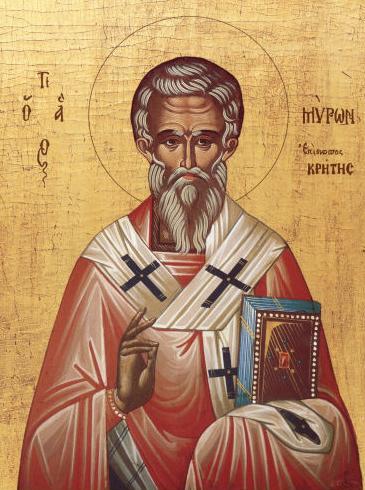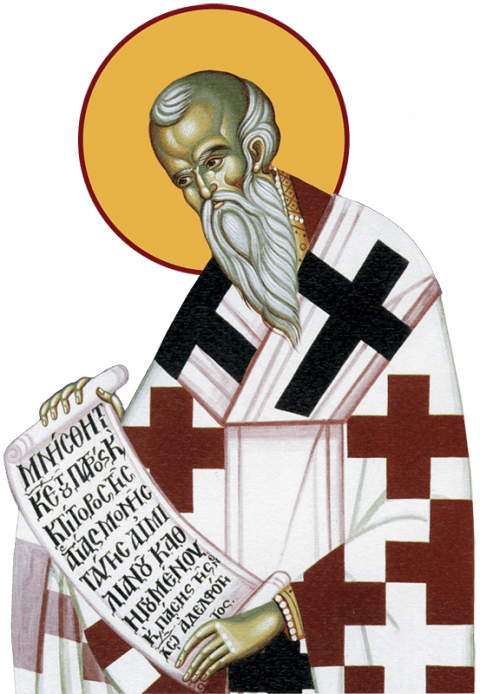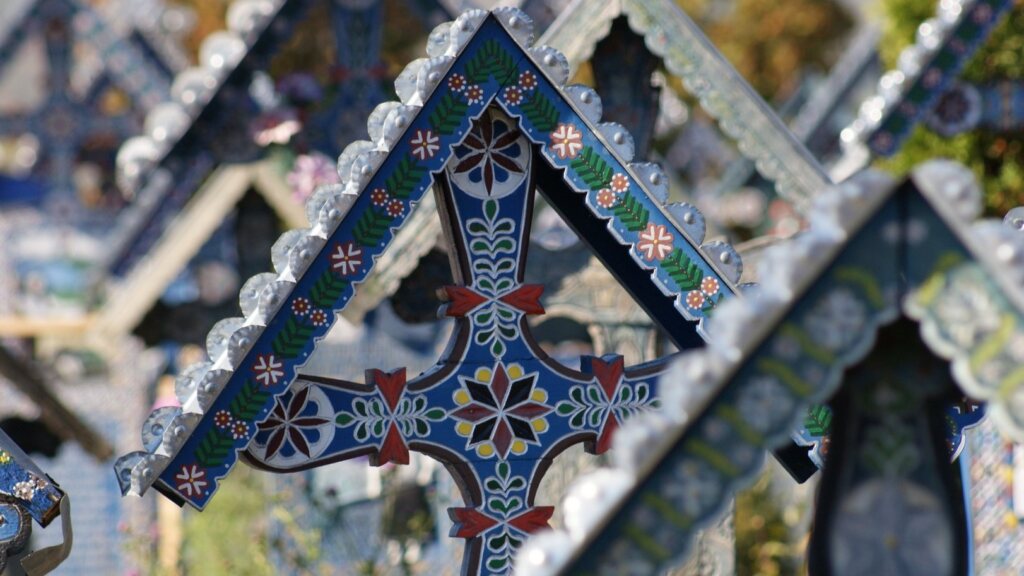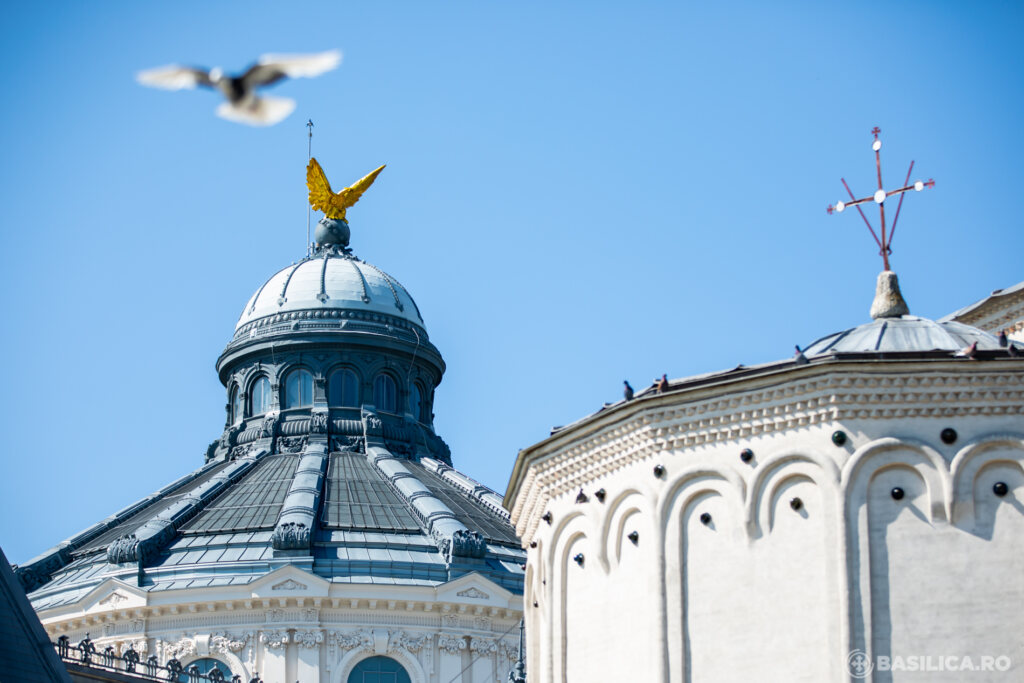Saint Emilian, Bishop of Cyzikus
Saint Emilian, Bishop of Cyzikus, lived during the reign of the Iconoclast emperor Leo the Armenian (813-820). He was summoned together with other bishops to the court of the emperor, who insistently urged the bishops to refrain from the veneration of holy icons.
Troparion — Tone 3
In confessing the Faith you proclaimed Orthodox doctrine / and were unjustly exiled for rebuking the wicked king. / Righteous and glorious Emilian, / the boast of Cyzicus, / entreat Christ God to grant us His great mercy.
Saint Emilian was the first to tell the emperor firmly that the question of the veneration of holy icons ought to be discussed and decided only within the Church by its spiritual leaders, and not at the imperial court. In the year 815, he was sent to prison for the Orthodox Faith, where he died as a confessor.
Saint Myron, Bishop of Crete

Saint Myron, Bishop of Crete, a wonderworker, in his youth was a family man and worked as a farmer. He was known for his goodness, and he assisted everyone who turned to him for help. Once, thieves burst in upon his threshing floor, and Saint Myron himself helped them lift a sack of grain upon their shoulders. By his generosity, the saint so shamed the thieves, that in future they began to lead honorable lives.
Out of profound respect for the saint, the Cretan people urged him to accept ordination to the priesthood in his native city of Raucia, and afterwards they chose him Bishop of Crete.
Wisely ruling his flock, Saint Myron received from the Lord the gift of wonderworking. At the time of a flood on the River Triton, the saint stopped its flow and went upon it as upon dry land, and then he sent a man back to the river with his staff to command the river to resume its course. Saint Myron fell asleep in the Lord at the age of 100, around the year 350.
Troparion — Tone 4
In truth you were revealed to your flock as a rule of faith, / an image of humility and a teacher of abstinence; / your humility exalted you; / your poverty enriched you. / Hierarch Father Myron, / entreat Christ our God / that our souls may be saved.
Tr by oca.org






